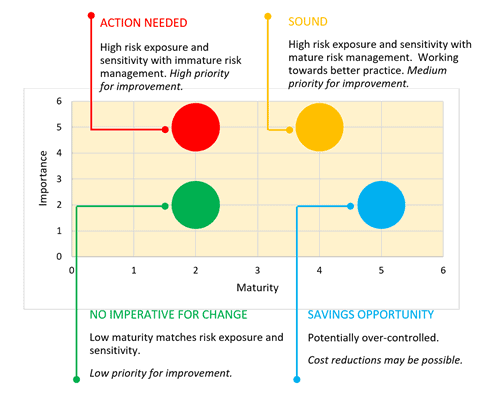Over the last few years both State-based and International anti-corruption bodies have been busily dealing with a steady stream of fraud and corruption cases. This has included well-publicised cases involving all levels of Government, as well as organisations across the Not-for-Profit and Private sectors. No industry, occupational group or sector is immune from the threat of fraudulent conduct.
“Worker sentenced to 30 months’ imprisonment for defrauding $244,000 from the Chris O’Brien Lifehouse, including by changing the bank account details of a cancer patient who died to an account she had access to”
- The Sydney Morning Herald (SMH), 3 March 2022
“Former head of Surf Life Saving NSW will spend at least 19 months behind bars after he defrauded the organisation during eight years at its helm…”
- SMH, 18 February 2022
“Australia records its worst ever score on anti-corruption index after decline to match Hungary’s”
- The Guardian, 25 January 2022
“Significant corruption allegations and findings within Council revealed.”
- Cairns Post, September 2021
“Council asks corruption watchdog to look into missing $4 million”
- SMH, 15 March 2021
“Council referred to corruption watchdog over defamation legal spend”
- The Brisbane Times, 5 January 2021
Fraud and corruption prevention is important in every organisation. Whether it be public sector agencies responsible for exercising the business of government, or Not-for-Profits appropriately using grant funding from government, the risks posed by fraud and corruption are simply bad for business. And there’s plenty of these risks: reputational damage, financial loss, legal costs, business disruption, staff turnover, etc.
But when organisations are facing challenges like shrinking budgets and increased service delivery expectations, the importance of fraud and corruption prevention can sometimes be overlooked. It can thus be difficult to determine whether your organisation’s fraud and corruption control system is fit for purpose. This is further exacerbated when changes to working arrangements and loss of long-term staff members lead to the loss of valuable knowledge about an organisation’s fraud and corruption risks and how to control them.
As you are probably aware, an almost bewildering array of written technical resources and standards exist to guide the prevention/detection of fraud and corruption control. However, many existing resources are generic in nature and may not be entirely appropriate for your organisation.
For example, the Australian Standard on Fraud and Corruption Control (i.e. AS8001:2021) runs to more than 50 pages. Small agencies are therefore likely to find it onerous and costly to fully implement. On the other hand, the NSW Audit Office’s Fraud Control Improvement Kit, which breaks fraud (but not corruption) control down into 10 attributes and 38 individual control elements, does not easily align to the Standard.
There is also a plethora of guidance and compliance requirements for public sector organisations, including Internal Audit, Risk Management, Audit Committees, Cyber security, recordkeeping, information classification and handling, supplier due diligence, and so on and so forth.
The sheer volume of information can be overwhelming – it can be even tougher to independently assess whether your organisation’s fraud and corruption control system is both compliant and fit for purpose.
FACET is a Fraud and Corruption Evaluation Tool that, when applied, will provide your organisation with contextual and appropriate advice to ‘correct-size’ your fraud and corruption controls. FACET is specifically designed to measure:
FACET has been developed by Centium, using our vast experience and knowledge of fraud prevention, risk management and internal audit.
FACET results, which will be presented in easy to understand graphics for each risk exposure (refer sample below), are not designed to drive you blindly towards best practice regardless of the appropriateness or cost of such an approach. They are designed to help you match the control system to your organisation’s risk profile and resources, i.e. to find a perfect balance between risk and control!

If you would like to know more about FACET or any of our other intelligent fraud and corruption control services (risk assessment & register, audits, etc), please contact Centium’s Director Risk & Assurance, Penny Corkill on 0409 251 011 or penelope.corkill@centium.com.au.
View our range of Risk & Assurance services. Alternatively, talk to us about how we can help.